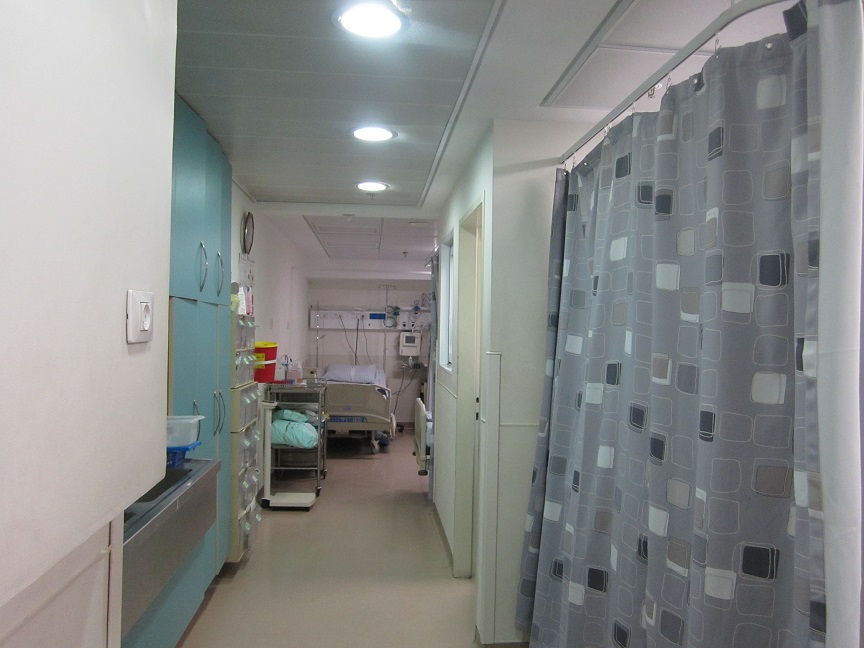
The Palestine Red Crescent Society celebrated the equipping of the emergency ward at its hospital upon funding from the Japanese government in the presence of Japan Representative to the State of Palestine Junia Mastoa, and the Minister of Jerusalem Affairs Adnan Al-Husseini and the President of PRCS Dr. Younis Al-Khatib and his deputy Dr. Abdallah Sabri and several cadres at PRCS.
Minister Husseini praised the support offered by the government and people of Japan to the Palestinian people and their national institutions, especially in the city of Jerusalem, which reflects Japan’s awareness of the importance of Jerusalem as the aspired capital of the Palestinian state and the need to support the steadfastness of Palestinians in Jerusalem under occupation.
He said: We can almost see the Japanese touches in the halls of PRCS Hospital to remind us of the Japanese model which stood up again from the rubble and destruction and started to build itself step by step to become one of the leading countries in this world and to impose itself on the international map. He called for following the Japanese model, asserting that the hospital shall remain a radiant crescent in the skies of Jerusalem and Palestine.
On his part, Dr. Al-Khatib, President of PRCS, recalled the first Japanese support to the Palestinian health sector since the establishment of the PNA; which was in supporting and developing the old Jericho Hospital and the construction of the new building. He stressed that Japan supported the Palestinian people with kind intentions and that the Palestinian people need more support and assistance, especially in the besieged city of Jerusalem.
Dr. Sabri pointed out that the Japanese support to the Palestinians stems from Japan’s awareness of the Palestinian suffering under the occupation, especially in the Holy City. He reviewed the support offered, where the PRCS hospital in Jerusalem got three Japanese grants: the first was in 2005; the second grant was in 2008, and today celebrating the third parcel of support of equipping the emergency ward which includes 14 beds and various medical and technical equipment with a total cost of $91,0000.
Dr. Sabri gave an overview of some services that are offered by the hospital, in terms of delivery and obstetrics and vaccination to more than 8,000 children. He called for continuing support as the hospital needs a postnatal care ward, expressing hope to get the needed support to equip the ward.
Eventually, The Japanese Representative to the State of Palestine affirmed on the policy of his country to continue supporting the Palestinian people and their various institutions until they achieve independence and establish their independent state.